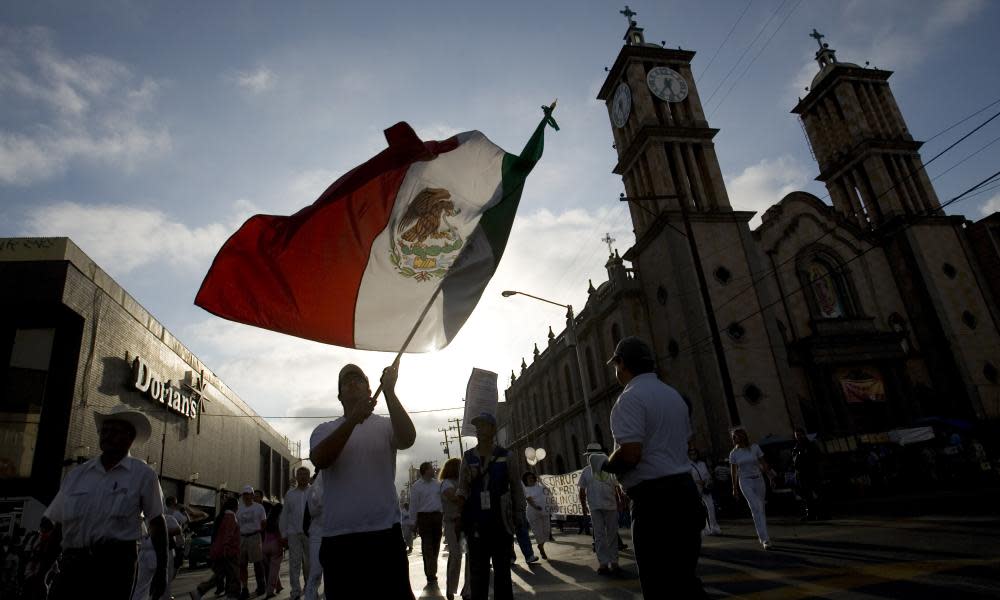Mexico's congress votes to remove politicians' legal immunity

Mexico’s lower house of Congress has voted to remove politicians’ immunity from prosecution, a move meant to curb corruption and impunity and lessen perceptions the country’s political class can act above the law.
Under the constitutional changes approved late on Thursday, the country’s president – who can currently only be impeached for treason and “serious crimes of the common order” – could be put on criminal trial while in office, but only after a vote in congress.
“This bill will put an end to the impunity that prevails in Mexico’s political circles,” congressman Jesús Álvarez López of the leftist Morena party told AP.
Politicians from all sides were quick to claim credit for the changes – which have long been pushed by parties while in opposition but blocked by the party in power.
Politicians’ immunity from prosecution helped fuel perceptions that some sought election as a way of staying one step ahead of the law. Over the past decade, several politicians with accusations of corruption against them or supposed ties to drug cartels have hid out in congress, hoping to swear their oath of office and emerge untouchable.
The bill was approved as Mexico readies for July presidential elections in which corruption has emerged as a central theme.
The ruling Institutional Revolutionary party (PRI) has been badly hit by corruption allegations, and even elected a non-member as its candidate – former finance minister José Antonio Meade – in an attempt to clean up its image.
But Meade has struggled to connect with voters, and one poll this week showed him trailing leftwing populist candidate Andrés Manuel López Obrador by 30 points.
A string of PRI state governors have been caught up in graft allegations and several are in prison awaiting trial. Tomás Yarrington, former governor of Tamaulipas state on the Texas border from 1999 to 2005, was extradited on Friday from Italy to the United States. Yarrington denies accusations of cartel money laundering.
However, some observers remain skeptical that stripping politicians of their immunity will prompt any real change in the country’s political culture.
“If you look at the politicians imprisoned in Mexico, they’re the product of political vendettas or the settling of scores, rather than acts of the justice system,” said Aldo Muñoz Armenta, a political science professor at the Autonomous University of Mexico State.
“As long as the prosecutor or investigators obey the president or governors, they’re not going to open an investigation into them so long as it’s not politically convenient.”

 Yahoo News
Yahoo News 
